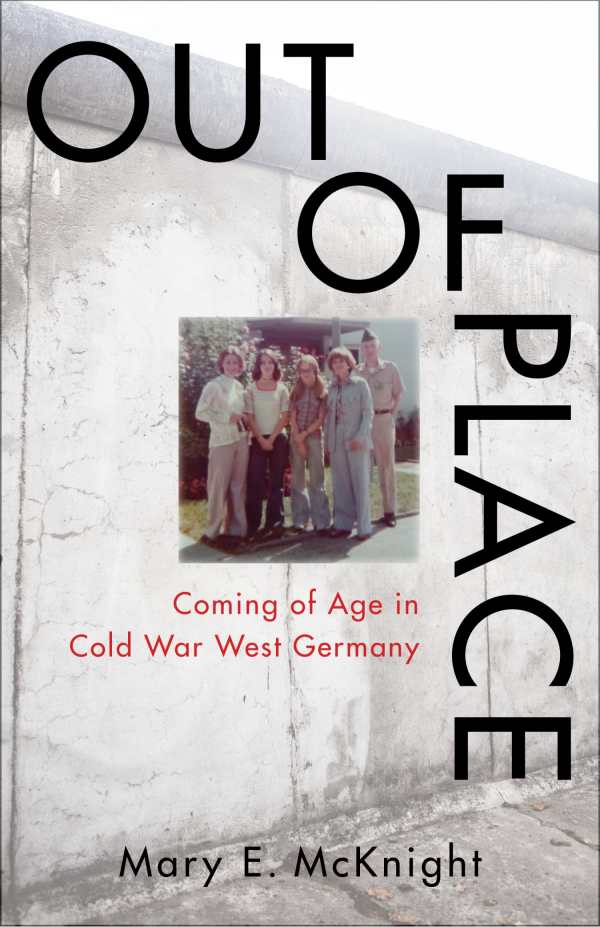Out of Place
Coming of Age in Cold War West Germany
Vibrant flashes of memory and studies in contrast mark Out of Place, a memoir about the lasting effects of a military childhood.
Mary E. McKnight’s expressive memoir Out of Place recounts her early adolescence as an American military child in 1970s West Germany.
In 1974, McKnight and her family began a three-year stay at an American military installation in Frankfurt, Germany. McKnight’s father was a civil engineer and a Vietnam veteran; McKnight, her mother, her sisters, and the family cat were accustomed to relocating for his assignments. As a military wife, McKnight’s mother followed her husband’s lead and maintained a pleasant home environment; as military children, McKnight and her sisters were encouraged to set a good example and be resourceful, resilient, and stoic.
McKnight turned thirteen soon after arriving in Frankfurt, and the book captures her adolescent awkwardness and emotional intensity. She and her sisters attended American-run schools with the other children of military personnel. Despite being placed in a new environment at a time of significant personal change, McKnight did her best to acclimate. She also began to question her mother’s submissiveness and to nurture her own burgeoning feminist consciousness, even while admiring her mother for her compassion and capability. Her father, in contrast, is captured as loving but more brusque—a figure who “conducted his life with detail, expectation, and honor.”
Vibrant with flashes of memory, the text covers McKnight’s first meaningful romantic crush, favorite songs playing on the radio, and the beginning of summer vacation. McKnight wobbled about on platform shoes, yearned for “hip-hugger jeans,” and made daring fashion choices despite her older sister’s jeering. And the period and setting are captured via contrasting impressions of Germany being shadowed by Nazi atrocities and divided by the Berlin Wall on the one hand and of the country’s distinct architecture and cultural heritage on the other. These factors are weighed against sights from the family’s travels: the Parthenon is “framed by the cloudless blue sky”; Neuschwanstein Castle is like a fairy tale; Dachau is overwhelming, marked by “deep sadness” and a sense of the dehumanizing cruelty it represents.
The narrative alternates between introspection, candor, and mellow rearward gazing. It is intimate at times, as where it expresses lingering anguish over personal pains, including a mediocre grade on an art project, sibling angst, and the lasting influence of the family’s code of stoicism. At times, as when it seeks connections between McKnight’s toxic romantic relationships in adulthood and the lessons she learned in childhood, it becomes discordant, its sense of deep unresolved pain clashing with its general focus on McKnight’s coming-of-age.
Out of Place is an engaging memoir about the propulsive energy of a 1970s youth spent abroad.
Reviewed by
Meg Nola
Disclosure: This article is not an endorsement, but a review. The publisher of this book provided free copies of the book and paid a small fee to have their book reviewed by a professional reviewer. Foreword Reviews and Clarion Reviews make no guarantee that the publisher will receive a positive review. Foreword Magazine, Inc. is disclosing this in accordance with the Federal Trade Commission’s 16 CFR, Part 255.

